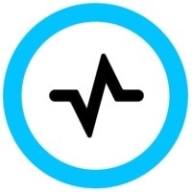

Graylog Enterprise and Grafana Loki are competitive in the log management and analysis market. Graylog Enterprise has an advantage in pricing and support, while Grafana Loki offers robust features that could justify its cost, indicating it might be a more comprehensive solution.
Features: Graylog Enterprise provides advanced alerting, customizable dashboards, and seamless integration with multiple data sources. Grafana Loki offers a flexible log aggregation setup, integration with the Grafana ecosystem, and focuses on time-series data analysis.
Room for Improvement: Graylog Enterprise could enhance its deployment simplicity, offer broader community support, and expand its integration capabilities. Grafana Loki could benefit from improving alerting systems, providing more comprehensive user guides, and enhancing support options.
Ease of Deployment and Customer Service: Grafana Loki is accessible for cloud-native operations with simple deployment using Docker and Kubernetes. Graylog Enterprise requires a more complex setup but offers comprehensive documentation and professional support. Graylog has extensive customer support versus Grafana Loki’s reliance on community assistance and ecosystem resources.
Pricing and ROI: Graylog Enterprise uses a variable pricing model based on data volume, offering potential cost benefits for certain usage patterns, delivering significant ROI through efficient management. Grafana Loki generally offers a lower entry cost and shows cost-effectiveness with its scalable approach within the existing Grafana suite, focusing on different budget strategies.
| Product | Market Share (%) |
|---|---|
| Grafana Loki | 8.1% |
| Graylog | 6.2% |
| Other | 85.7% |


| Company Size | Count |
|---|---|
| Small Business | 7 |
| Midsize Enterprise | 8 |
| Large Enterprise | 3 |
| Company Size | Count |
|---|---|
| Small Business | 8 |
| Midsize Enterprise | 4 |
| Large Enterprise | 7 |
Grafana Loki is a powerful log aggregation and analysis tool designed for cloud-native environments. Its primary use case is to collect, store, and search logs efficiently, enabling organizations to gain valuable insights from their log data.
The most valuable functionality of Loki is its ability to scale horizontally, making it suitable for high-volume log data. It achieves this by utilizing a unique indexing approach called "Promtail," which efficiently indexes logs and allows for fast searching and filtering. Loki also supports log streaming in real-time, ensuring that organizations can monitor and analyze logs as they are generated.
By centralizing logs in a single location, Loki simplifies log management and troubleshooting processes. It provides a unified view of logs from various sources, making it easier to identify and resolve issues quickly. With its powerful query language, organizations can extract meaningful information from logs, enabling them to gain insights into system performance, identify anomalies, and detect potential security threats.
Loki's integration with Grafana, a popular open-source visualization tool, allows users to create rich dashboards and visualizations based on log data. This combination enhances the observability of systems and applications, enabling organizations to make data-driven decisions and improve overall operational efficiency.
Graylog Enterprise, recognized for log collection, real-time search, and enriched data handling, offers an open-source framework that integrates seamlessly with Elasticsearch. Its user-centric interface streamlines data correlation and log aggregation, supporting both backend services and comprehensive monitoring needs.
Graylog Enterprise stands out for its stability and powerful log management capabilities, facilitating efficient log aggregation, real-time updates, and data analytics. Users benefit from its plugin-based alerting, user-friendly interface, and support for microservices, including Docker integration. The ability to search in detail, flexible API integration, and data enrichment features are highly valued. Challenges include collector application issues, desired visualization enhancements, and authentication integration improvements. Users seek advancements in UI customization, backup functions, and easier rule creation.
What are Graylog Enterprise's most important features?In industrial use, Graylog Enterprise is crucial for audit trailing in financial sectors, facilitating security event identification and error monitoring. Backend teams leverage real-time analytics for swift issue resolution, while developers appreciate the comprehensive log visualization enabled by Docker integration for microservice management.
We monitor all Log Management reviews to prevent fraudulent reviews and keep review quality high. We do not post reviews by company employees or direct competitors. We validate each review for authenticity via cross-reference with LinkedIn, and personal follow-up with the reviewer when necessary.